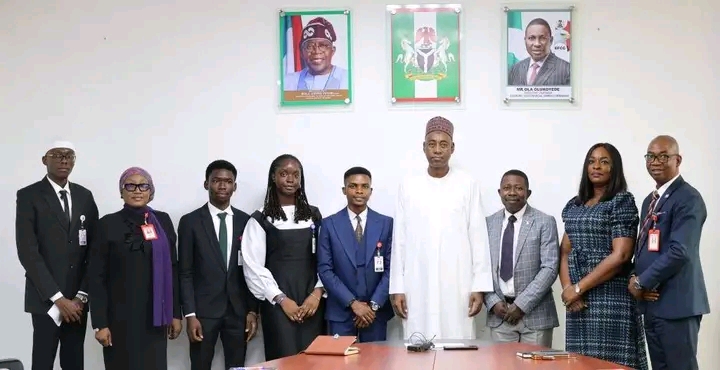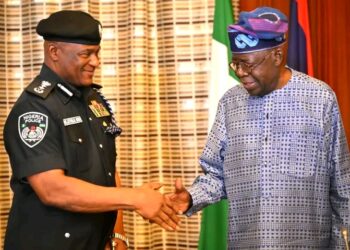Abuja — A group of students from Ahmadu Bello University (ABU), Zaria, has deepened its partnership with the Economic and Financial Crimes Commission (EFCC) in the ongoing campaign against corruption and economic crimes.
The group led by Joseph Omouha, President of the university’s Zero Tolerance Club, visited the EFCC headquarters in Abuja with a clear mission to strengthen ties with the Commission and explore new ways of supporting its anti-corruption efforts.
“Our club is fully aligned with the goals set by the EFCC. We focus on campus-wide sensitization campaigns, outreach to secondary schools, and seminars that encourage students to embrace ethical conduct,” Omouha said.
He disclosed that the club had just concluded its membership drive, sharing educational materials with over 30 new members.
The group president also urged the Commission to support their plan to host a student-led anti-corruption conference, the first of its kind aimed at expanding the conversation on accountability across higher institutions.
Welcoming the students, EFCC Secretary Muhammad Hammajoda praised the group’s dedication and described their involvement as a meaningful step toward building a corruption-resistant society.
“The work you are doing reflects the spirit we need in this country — young people committed to honesty and service. The ABU Zaria Zero Tolerance Club remains one of the most active we’ve seen, and we encourage you to continue setting the pace,” Hammajoda said
He explained that the Commission regularly engages students and school clubs to help them understand the cost of corruption and their role in tackling it. According to him, such interactions build character and foster a culture of integrity from a young age.
Hammajoda urged the students to act as change agents in their schools and communities, stressing that the fight against corruption cannot succeed without the active participation of the youth.
“We’re open to working closely with you. Your energy and ideas are valuable in this fight. Let’s continue to build a future where transparency and accountability thrive,” he said.





